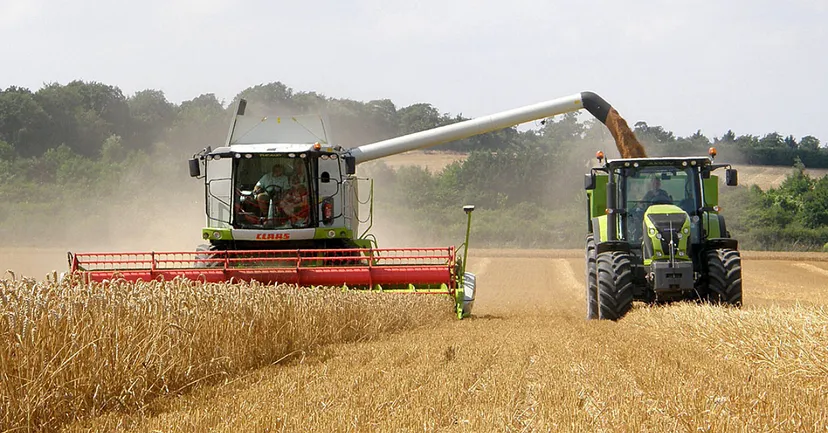Exploring Agricultural Products in Ireland
- tanksandagri1
- Sep 8, 2023
- 3 min read

Ireland’s rich agricultural heritage has made it a key player in the global agriculture sector. With its lush green landscapes and favorable climate, the country boasts a diverse range of agricultural products. In this comprehensive guide, we will delve into the world of agricultural products in Ireland, exploring its history, current status, challenges, and prospects.
The Agricultural Landscape of Ireland
Agricultural products in Ireland is a sector that is deeply rooted in its history and culture. For centuries, farming has been a way of life for many Irish families, and the sector has undergone significant transformations over time. Today, Ireland’s agricultural landscape is a dynamic and essential part of its economy.
1. Historical Overview
The history of agriculture in Ireland dates back thousands of years, with early settlers engaging in subsistence farming. During the medieval period, the introduction of new farming techniques and crops by the Normans led to increased agricultural productivity. However, the Great Famine in the mid-19th century had a devastating impact on Irish agriculture and the population.
2. Current Agricultural Practices
Modern Irish agriculture is characterized by a mix of traditional and modern practices. The country is known for its grass-fed cattle, dairy production, and a wide variety of crops. The mild and moist climate is conducive to grass growth, making it ideal for livestock farming.
Agricultural Products in Ireland
Ireland produces a wide array of agricultural products, contributing significantly to the country’s economy. Let’s take a closer look at some of the key agricultural products in Ireland.
1. Dairy Products
Ireland is renowned for its high-quality dairy products, particularly dairy exports such as butter and cheese. The country’s commitment to sustainable and ethical farming practices has resulted in premium dairy offerings.
2. Beef
Irish beef is sought after worldwide for its quality and taste. The grass-fed cattle in Ireland produce tender and flavorful meat, making it a staple in many international markets.
3. Crops
Ireland cultivates a variety of crops, including wheat, barley, oats, and potatoes. These crops support both domestic consumption and export markets.
4. Poultry and Eggs
The poultry and egg sector in Ireland has been steadily growing, with a focus on organic and free-range production methods.
5. Seafood
Given its extensive coastline, Ireland also boasts a thriving seafood industry. Common catches include salmon, mackerel, and shellfish.
Challenges in Agricultural Products in Ireland
While Irish agriculture has seen many successes, it also faces its fair share of challenges.
1. Climate Change
The unpredictable Irish weather has been further exacerbated by climate change. Farmers must adapt to increasingly variable weather patterns, including more frequent storms and heavy rainfall.
2. Sustainability
Sustainability is a growing concern in agricultural products in Ireland. Striking a balance between productivity and environmental preservation is crucial for the long-term viability of the sector.
3. Brexit
The United Kingdom’s departure from the European Union, commonly referred to as Brexit, has had implications for trade in agricultural products between Ireland and the UK. New trade agreements and regulations have added complexity to Irish farmers’ export efforts.
Government Initiatives and Support
The Irish government has implemented various initiatives and policies to support its agricultural sector.
1. Rural Development Programs
The Rural Development Program (RDP) allocates funds to rural areas for agricultural and environmental initiatives. These programs aim to improve the sustainability of farming practices.
2. Agri-Food Strategy 2030
The Agri-Food Strategy 2030 outlines the government’s vision for the future of the agri-food sector. It places a strong emphasis on sustainability, innovation, and market development.
Prospects for Agricultural Products in Ireland
Despite the challenges, Irish agriculture has a promising future.
1. Sustainability
Ireland is making significant strides toward more sustainable agriculture. Practices such as organic farming, reduced pesticide use, and carbon footprint reduction are becoming more common.
2. Export Opportunities
Irish agricultural products in Ireland continue to gain popularity in international markets. The demand for high-quality, ethically produced food presents opportunities for further growth in exports.
3. Technological Advancements
Advancements in technology, such as precision farming and data analytics, are helping Irish farmers improve productivity and resource management.
Conclusion
Ireland’s agricultural sector is a vibrant and integral part of the country’s identity and economy. From its rich history to its diverse range of products, Irish agriculture continues to evolve and adapt to meet the challenges of the modern world. With a focus on sustainability and innovation, the future of agricultural products in Ireland looks promising, ensuring a bountiful harvest for generations to come.



Comments